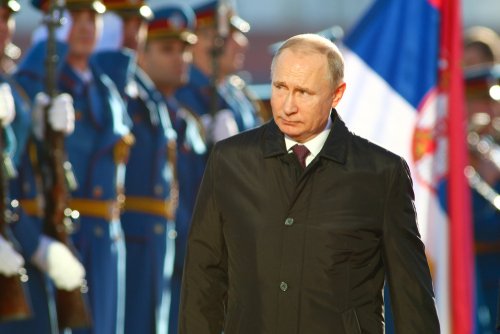Brussels (Brussels Morning) Russian President Vladimir Putin’s United Russia party retained its majority in the Duma, the Russian parliament, after the majority of ballots had been counted on Monday.
According to the Russian Central Election Commission, the Kremlin-friendly United Russia was confirmed as winning nearly 50% of the vote, with the largest opposition party, the Communist Party, winning a little less than 20%. The nationalist LDPR party and the Fair Russia party won around 7% each. This means that the same four parties remain in the parliament, with all three opposition parties regularly backing Putin’s policies.
A new party, dubbed “New People”, appears to have introduced a slight change in the Duma’s composition, having managed to pass the 5% electoral threshold, and so is likely to be represented in the parliament also, depending on the final official vote count
This year’s Russian parliamentary elections were preceded by months of crackdowns on independent media, opposition politicians and groups, as well as civil rights activists. Putin appeared to be much more concerned about the outcome than in prior elections.
The current results indicate a drop in popularity for United Russia, which won 54% of the vote in the previous elections. However, opposition and activists claim that voter fraud and rigging was rampant, and that the party’s real backing is much lower.
Hacking attempts
The elections were carried out over three days, in a bid to combat low turnout and reduce the dangers of the coronavirus pandemic. It marked the first time that Russians could vote online. Putin himself voted online, finding himself in isolation because of coronavirus cases within his inner circle.
Russian authorities claimed they have discovered and prevented a huge number of hacking attempts, mostly originating from the US and Germany, but also from China, Ukraine, Poland and from within Russia itself.
Allies of prominent Kremlin critic Alexei Navalny, jailed earlier this year for supposedly violating the terms of a suspended sentence, attempted to organise a tactical voting campaign, inviting all voters to cast their votes for candidates most likely to defeat members of Russia United, which in most cases meant Communist Party.
Navalny’s allies, most of them barred from running themselves after their anti-corruption NGO was labeled as an “extremist organisation”, called the vote a “sham”, as did other Kremlin critics.
Independent election watchdog Golos, labelled as a “foreign agent” by the authorities, reported thousands of violations at polling places all over Russia, including threats against observers plus blatant ballot stuffing, all in favour of United Russia. The Election Commission reported only 12 cases of ballot stuffing, claiming all such cases resulted in voided votes.




